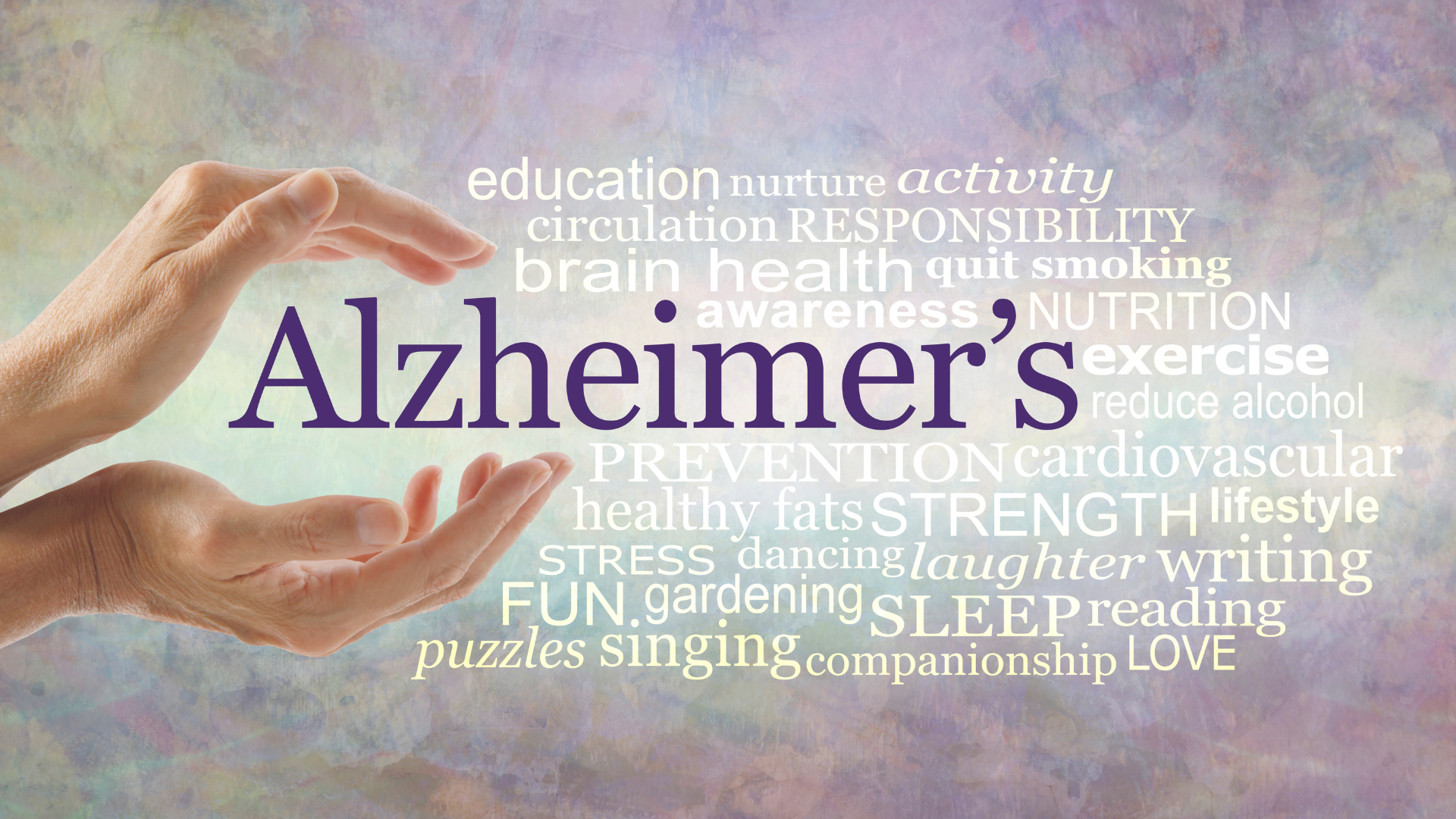What Innovations Are Transforming Alzheimer's Care?
Alzheimer's disease, a progressive neurodegenerative disorder, affects millions globally, robbing individuals of their memories and cognitive abilities. Its impact extends beyond patients, profoundly influencing families and caregivers. As this epidemic continues to grow, there is an urgent need for innovative solutions in Alzheimer's care. This blog delves into the definition and far-reaching consequences of Alzheimer's, emphasizing the crucial demand for advancements in care methodologies. In this blog, we dissect cutting-edge technologies and approaches that hold the potential to revolutionize Alzheimer's care, providing hope and improved quality of life for those affected by this challenging condition.

Traditional Approaches To Alzheimer's Care
Alzheimer's disease, a formidable foe, not only challenges those directly affected but also places a heavy burden on caregivers and healthcare systems. In the face of this complex neurodegenerative condition, traditional approaches to Alzheimer's care have been foundational. This blog explores the conventional methods employed in caring for individuals with Alzheimer's, shedding light on both their strengths and limitations.
- Traditional Care Methods: Traditional approaches to Alzheimer's care have historically encompassed a combination of pharmacological interventions, behavioral therapies, and caregiver support. These methods aim to alleviate symptoms, enhance patient well-being, and provide a semblance of normalcy.
- Limitations and Challenges: Despite their prevalence, traditional approaches face inherent challenges. The progressive nature of Alzheimer's often outpaces the effectiveness of available medications, and behavioral interventions may yield inconsistent results. Caregivers, too, encounter challenges in managing the evolving needs of patients, leading to heightened stress and burnout.
- The Human Touch: One cornerstone of traditional Alzheimer's care is the emphasis on the human touch. Caregivers play a central role in providing emotional support, companionship, and assistance with daily activities. This approach recognizes the importance of maintaining a connection with the person behind the disease.
- Cognitive Stimulation: Engaging patients in cognitive activities forms another integral aspect of traditional care. Puzzle games, reminiscence therapy, and social interactions are employed to stimulate mental faculties, slowing cognitive decline and enhancing overall quality of life.
- Support Groups and Education: Caregiver support groups and educational programs form a crucial part of traditional approaches. These initiatives provide a platform for caregivers to share experiences, learn coping strategies, and gain insights into managing the complexities of Alzheimer's care.
- Evolving Dynamics of Care: As our understanding of Alzheimer's deepens, traditional approaches are evolving. Research continues to refine pharmacological interventions, and a greater emphasis is being placed on holistic care that addresses not only cognitive symptoms but also emotional and social well-being.
While traditional approaches have laid the groundwork for Alzheimer's care, the journey is far from over. Acknowledging the strengths and limitations of these methods paves the way for a more comprehensive, innovative approach. In the upcoming segments of this blog series, we will delve into the exciting realm of cutting-edge technologies and progressive approaches that promise to redefine Alzheimer's care in the years to come.

The Role Of Wearable Devices And Remote Monitoring
In the dynamic landscape of healthcare, wearable devices and remote monitoring technologies have emerged as powerful tools, offering unprecedented opportunities to transform the way we approach Alzheimer's care. This blog explores the impact of wearables and remote monitoring in providing proactive and personalized care for individuals living with Alzheimer's disease.
Continuous Health Monitoring
Wearable devices equipped with advanced sensors have the capability to provide continuous health monitoring for individuals with Alzheimer's. These devices can track vital signs, sleep patterns, and activity levels, offering valuable insights into the overall well-being of the patient.
Proactive Care and Early Detection
One of the key advantages of wearable devices is their potential for early detection of changes in health status. By analyzing data trends over time, caregivers and healthcare professionals can identify subtle deviations from baseline behavior, enabling proactive interventions and timely medical attention.
GPS Tracking for Enhanced Safety
Wearable devices, often integrated with GPS technology, enhance the safety of individuals with Alzheimer's who may be prone to wandering. Caregivers can remotely monitor the location of the person in real-time, providing an added layer of security and peace of mind.
Medication Adherence
Ensuring proper medication adherence is a crucial aspect of Alzheimer's care. Wearable devices can be programmed to deliver medication reminders, helping individuals adhere to their treatment plans and reducing the risk of missed doses.
Remote Caregiver Support
Remote monitoring technologies extend beyond the individual with Alzheimer's to provide support for caregivers. Real-time data sharing allows caregivers to stay informed about their loved one's condition, even from a distance, fostering a sense of connectedness and facilitating timely decision-making.
Challenges and Considerations
While wearable devices and remote monitoring offer promising benefits, it's important to address challenges such as data privacy, user acceptance, and the need for user-friendly interfaces. Ethical considerations regarding consent and data security must be carefully navigated to ensure the responsible implementation of these technologies.
Future Directions
As technology continues to advance, the potential applications of wearable devices in Alzheimer's care are boundless. Ongoing research explores the integration of artificial intelligence to analyze data patterns and predict health events, further enhancing the efficacy of remote monitoring.
Wearable devices and remote monitoring technologies represent a paradigm shift in Alzheimer's care, empowering individuals and their caregivers with actionable insights and real-time support. By embracing these innovative tools, we move closer to a future where personalized, proactive, and connected care becomes the new standard in the journey of Alzheimer's management.
Ethical Considerations And Privacy Concerns
As we explore the transformative potential of technological innovations in Alzheimer's care, it is imperative to navigate the ethical considerations and privacy concerns inherent in these advancements. This blog delves into the delicate balance between harnessing cutting-edge technologies for improved care and safeguarding the privacy and dignity of individuals living with Alzheimer's.
- The Ethical Imperative: Alzheimer's care, at its core, is a deeply personal and often vulnerable journey for individuals and their families. Ethical considerations in deploying technologies aim to prioritize the well-being, autonomy, and dignity of those affected. This section explores the ethical imperative that underlies the integration of innovations into the caregiving landscape.
- Informed Consent and Autonomy: Respecting the autonomy of individuals with Alzheimer's is paramount. The blog discusses the importance of obtaining informed consent, considering the cognitive challenges faced by those with the disease. Striking a balance between empowering individuals to make decisions and ensuring their safety becomes a central theme.
- Data Privacy and Security: The digital nature of many innovative solutions introduces concerns regarding data privacy and security. This section examines the measures needed to protect sensitive health information, emphasizing the significance of secure platforms, encryption, and adherence to healthcare data protection regulations.
- Transparency in Technology Use: Effective communication and transparency are crucial in addressing privacy concerns. Caregivers and individuals with Alzheimer's should be informed about the purpose, scope, and potential impact of technology use. Open dialogue ensures that all stakeholders are on board and aware of the implications of these tools.
- Striking a Balance: Balancing the benefits of technology with the ethical responsibilities involves considering the potential risks and unintended consequences. The blog discusses the need to assess the impact of innovative solutions on the overall well-being of individuals with Alzheimer's, carefully weighing the benefits against any potential infringements on privacy.
- Cultural and Social Sensitivity: Ethical considerations extend beyond individual preferences to encompass cultural and social sensitivities. This section explores the importance of tailoring Alzheimer's care technologies to diverse cultural contexts, respecting varying attitudes towards privacy and technology adoption.
- The Role of Regulations and Guidelines: The evolving landscape of healthcare technology requires robust regulatory frameworks and ethical guidelines. This blog section explores the current state of regulations surrounding Alzheimer's care technologies and advocates for continuous refinement to address emerging ethical challenges.
- Continuous Reflection and Adaptation: Ethical considerations in Alzheimer's care are not static; they require ongoing reflection and adaptation. As technologies advance, this section emphasizes the need for a responsive and evolving ethical framework that safeguards the rights and dignity of those living with Alzheimer's.
As we embrace the potential of innovative technologies in Alzheimer's care, a steadfast commitment to ethical considerations and privacy protection is paramount. Striking the right balance ensures that the transformative power of these advancements is harnessed responsibly, fostering a future where innovation and ethical care go hand in hand in the complex landscape of Alzheimer's disease management.
Conclusion
In conclusion, our exploration into innovations transforming Alzheimer's care has unveiled a promising landscape of possibilities. From wearable devices providing real-time monitoring to ethical considerations guiding the responsible use of technology, each advancement contributes to a brighter future for individuals and families affected by Alzheimer's. As we navigate this evolving frontier, the key lies in a delicate balance between innovation and ethical responsibility. To learn more about these groundbreaking developments or to engage with our community, contact us today or visit our website. Together, we envision a future where compassion, cutting-edge technologies, and ethical considerations converge for optimal Alzheimer's care.


